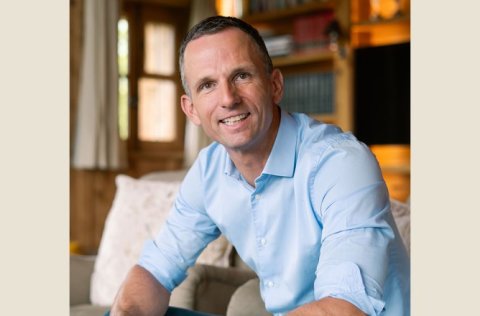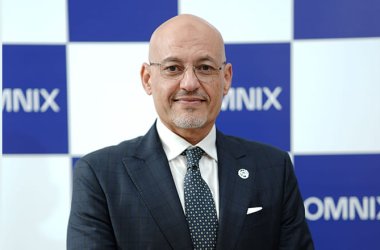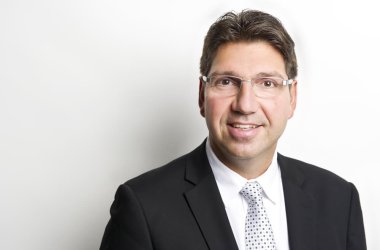CNME Editor Mark Forker spoke to international entrepreneur and investor David von Rosen-von Hoewel to find out why he believes Dubai will eventually replace Silicon Valley as the start-up capital of the world. 
David von Rosen-Von Hoewel is well-versed in the art of start-up companies.
In a stellar career, he has established global businesses from scratch such as his fashion label VONROSEN and online gaming platform Lottoland.
The German-native is also a serial investor with a keen interest in technology designed to disrupt the status quo.
Von Rosen is based in Dubai, and he believes the city has all the components required to become the new global hotspot for start-ups and aspiring entrepreneurs.
“I think in order to become a very successful entrepreneurial hub you need capital and talent, and I think Dubai has both in abundance. I feel there is a high-risk appetite across Dubai. Entrepreneurs that have invested in early-stage companies want to grow fast, and have a real desire and motivation to make money and succeed. There are a lot of venture capitalists in Dubai, and I think more and more money is going to pour in,” said von Rosen.
He said the real jewel in Dubai’s blossoming start-up landscape is the ‘talent’ that exists in the region.
“I think the most important component in Dubai’s booming start-up ecosystem is the talent that is in the region. There are so many people across the city that have that energy, will, hunger and optimism to create a business. I don’t see that energy and motivation anywhere else in the world. It’s such a thriving space, and everyone you speak to has an idea and wants to create something. The innovation is palpable, and this is exactly the type of environment in which great companies are built,” said von Rosen.
There still remains the perception that the place to be in terms of building a new company is to be in the United States, or Europe, but the Lottoland founder believes that will soon become a thing of the past.
“I think it’s only a matter of time before the US views Dubai as the best place in the world to do business. We’re moving two of our companies to Dubai because there is so many young well-educated people who are hungry for work, hungry for success, and it’s the perfect recipe to build new businesses. In summary, the combination of talent and capital is driving the start-up ecosystem in Dubai, but another key factor is the regulation environment that it is in place, there are very low barriers of entry, low tax, which makes it easy to start a company online – and that’s a great ecosystem to innovate and launch new businesses,” said von Rosen.
He also pointed out that inflated salaries in the United States, and the focus on lifestyle in Europe, has also helped boost Dubai’s ambition to be the start-up capital of the world.
“In the US, and especially in Silicon Valley salaries have grown exponentially. Dubai is not a cheap city either, but you can hire young people with a rock-solid University education for much less than you’d do on the West coast. I think in relation to Europe, I just find this shift, which has been driven by COVID towards lifestyle has accelerated, and you might argue that it is a good thing for the individual, but for the economy it is not. I just think that sort of attitude, which again you can argue is good for the individual, doesn’t lend itself well towards building start-ups, there are less hard-working people, whereas in Dubai, the people that are there are hungry to succeed and are motivated to be successful. If you’re starting a business you need to be willing to make sacrifices, and find the right talent that is willing to do the same. I just think in Europe, people are working less and less,” said von Rosen.
When asked when he thinks we’ll see US companies making the jump to Dubai, von Rosen is predicting that it’ll happen in the next 3-5 years.
“I think it’s only a matter of time, the barrier preventing it now is simply the geographical distance between America and Dubai. However, I think that in the next 3-5 years you’ll see a trend of American start-ups coming to the UAE to establish their operations. The US is such a big market in itself too, and that’s also a factor, but I do believe it’ll be a self-fulfilling prophecy once you have more and more of these unicorns coming out of Dubai. The exact same thing happened in the Valley, they had one or two unicorns, then it just spiralled and became the start-up ecosystem of the world. I believe there will be a couple of big unicorns that will emerge from Dubai and that will really, really challenge the location of the Valley, and the challenge the position the United States has on international entrepreneurship,” said von Rosen.
The focus of the interview then shifted to Lottoland, which is now 10 years old.
The company has enjoyed phenomenal success, and von Rosen explained the mission statement of Lottoland.
“It’s been 10 incredible years, and at the very beginning it was just a handful of my close friends that started on the company. The idea and concept of the company is to globalise and internationalise the lottery. I was a lottery player back then, and I really love that idea of waking up one morning as a millionaire. It gives people the ability to dream, and that’s a powerful thing. I know the math, and I know the odds, but if you don’t buy a ticket then you have a zero chance of winning and becoming a millionaire, but if you have a ticket then you have a small chance of winning – and that enables you to dream and that’s why I started the company,” said von Rosen.
They say that in life, it’s all about timing, and von Rosen conceded that the timing of Lottoland’s entry into the gaming marketplace was perfect.
“We were lucky in terms of where we started and how we started, and I think we just hit a nerve. There was a huge wave just before us in relation to online gambling. Before the introduction of the lottery online, it was essentially sports’ betting and online casinos – and it was predominantly dominated by British and Irish companies, which made it a big marketplace in Europe. However, none of them were offering online lottery, so we identified a gap in the market, and that’s where we came in,” said von Rosen.
Another motivating factor was the fact that the lottery until Lottoland entered the market was a complete monopoly.
“I detest monopolies, and I think they are wrong for an economy. I like a good challenge, and it was the last standing monopoly in many countries, and even today, in some cases it still is. For me, a monopoly hinders innovation, because when you are the monopolist then you don’t need to innovate, you can lean back, and it hinders growth, so it effects the economy. We moved to Gibraltar and internationalised the company from continental Europe, and we expanded into the UK, Ireland and Africa. We had phenomenal success in Australia, and the last market we penetrated was the US, which has now become our fastest growing market,” said von Rosen.
Von Rosen also disclosed that he has another couple of other online gambling companies.
“We’re on the path to make $1bn in revenue for this year, and it’s been very profitable for us. What I’m extremely proud of is the fact that we never took in any venture capital, it was all bootstrapped. We were profitable from the first day we went live – and I was always very cost aware. I would fight for every penny, and that made us quite profitably very quickly,” said von Rosen.
As aforementioned above von Rosen is also a serial investor, but unlike other angel investors, he typically only does majority investments.
“I don’t like minority investment, I’ve done it in the past, but I’ll only do it if something specifically interests me, and there’s no other way to do it. Usually our group takes 50%+ and then I put all my weight behind it in terms of money, connections, network, and time to try and make it grow. I love tech, but I am also very interested in mobility. Anything that transports humans and goods in a faster and more efficient way excites me. I like disruptors that have broad shoulders and really disrupt the status quo,” concluded von Rosen.





